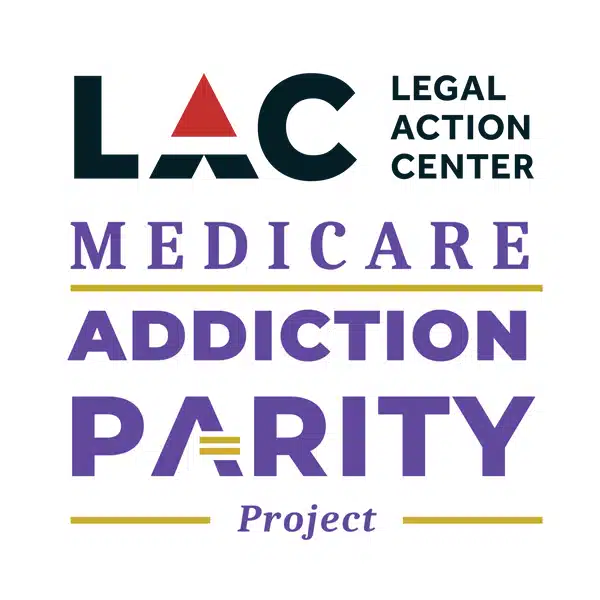Coverage Gaps Keep Medicare Beneficiaries from Needed Care

This article was written in coordination with the Center for Medicare Advocacy and the Legal Action Center.
The New York Times recently highlighted a terrifying statistic: Black men in their mid-50s to early 70s in Baltimore are dying from overdoses at a rate 20 times higher than the rest of the country. This group accounts for almost 30% of drug fatalities in the city even though they only represent 7% of the Baltimore population. Furthermore, well over half of the locations where fatal overdoses in Baltimore have taken place are senior housing complexes.
Racism, ageism, and stigma towards people with substance use disorders undoubtedly fuel this disparity. Shamefully, these types of discrimination are also built into Medicare, the federal health insurance program serving most older adults in America, as demonstrated by the program’s ongoing failure to cover substance use disorder treatment in a comprehensive and equitable way. Take for instance a recent report from the U.S. Department of Health & Human Services Office of Inspector General (OIG) which found that Medicare beneficiaries ages 65 and older are less likely (11%) than those under 65 years old (29%) to receive medications for opioid use disorder (MOUD) and that white beneficiaries are more likely to receive MOUD (19%) than Black beneficiaries (15%), Hispanic beneficiaries (15%), and Asian/Pacific Islander beneficiaries (11%). The report also showed that Medicare beneficiaries with the Part D low-income subsidy were far more likely to receive MOUD (26%) than those without this financial assistance to help cover the cost of care (9%).
While the NYT article notes commendable efforts in Maryland to address rising rates of overdose among older adults, including Baltimore serving “large numbers” of older Black people through its overdose prevention efforts – such as harm reduction services like naloxone training and distribution of Narcan and clean syringes – and the state Department of Health recently awarding a $30,000 grant to hire recovery specialists for one of Baltimore’s most affected senior buildings, these efforts do not get at the root issue. Structural changes in Medicare are needed to ensure that ALL older adults have access to the full scope of evidence-based substance use disorder treatment and can obtain and afford the services that meet their unique needs.
Despite significant legislative and regulatory reforms in recent years, there are still stark coverage gaps that prevent Medicare beneficiaries from getting the care they need, as highlighted in LAC’s recent issue brief.
For one, Congress and CMS must work together to improve coverage of substance use disorder medications and services. This must include removing barriers to MOUD, particularly in Medicare Advantage plans where Black and brown beneficiaries are overrepresented and subjected to greater financial barriers and treatment limitations, including prior authorization and other utilization management practices that restrict access to MOUD. Medicare must also cover residential substance use disorder treatment so that beneficiaries can access the most appropriate level of care they need in appropriate settings. Furthermore, coverage of mobile crisis teams must be added to ensure people can get help from mental health and addiction professionals in their community when they are in distress. These services minimize the role of law enforcement in such crises, preventing interactions that often lead to punishment and violence, particularly for Black and brown individuals. Nearly all of the older adults interviewed for the New York Times article were formerly incarcerated, further substantiating the need to expand crisis response services and limit law enforcement encounters with this population.
Second, Congress and CMS must also enhance the Medicare workforce of addiction treatment providers and facilities by increasing reimbursement rates, authorizing coverage of community-based substance use disorder treatment facilities beyond opioid treatment programs, and expanding the workforce to include peer support specialists and non-master’s level addiction counselors. The OIG report found that more Black and Hispanic beneficiaries get their MOUD from opioid treatment programs, suggesting that similar coverage of other community-based treatment facilities will help improve access to care for this population, while also increasing access to buprenorphine. Covering peer support specialists and non-master’s level addiction counselors and increasing reimbursement rates will bring more Black and brown clinicians into the Medicare mental health and addiction workforce, which will improve access to culturally effective care.
Third, CMS must improve network adequacy standards in Medicare Advantage to ensure that not only is treatment covered, but that it is also meaningfully available and accessible, including for those living in older adult housing complexes as well as historically underserved communities. Including discrete standards for substance use disorder providers and settings that outline reasonable appointment wait times and travel distances will help to ensure people can get care when and where they need it.
Finally, Congress must apply the Mental Health Parity and Addiction Equity Act to Medicare to ensure that beneficiaries have coverage of substance use disorder and mental health care that is comparable to their coverage for other medical and surgical needs. Coupled with the recently released Section 1557 rules and Rehabilitation Act Section 504 rules, parity can help protect older adults with substance use disorders from ongoing discriminatory barriers to the treatment they need and deserve.

Legal Action Center’s Medicare Addiction Parity Project was established in 2021 to improve access to substance use disorder (SUD) care in Medicare, the federal program that provides health insurance coverage to individuals ages 65 and older as well as younger individuals with long-term disabilities.

The Center for Medicare Advocacy is a national, nonprofit, non-partisan law organization that works to advance access to comprehensive Medicare coverage, health equity, and quality health care for older people and people with disabilities through legal analysis, education, and advocacy.
The Latest
Most Read
Add Medicare to Your Inbox
Sign up to receive Medicare news, policy developments, and other useful updates from the Medicare Rights.
View this profile on InstagramMedicare Rights Center (@medicarerights) • Instagram photos and videos









